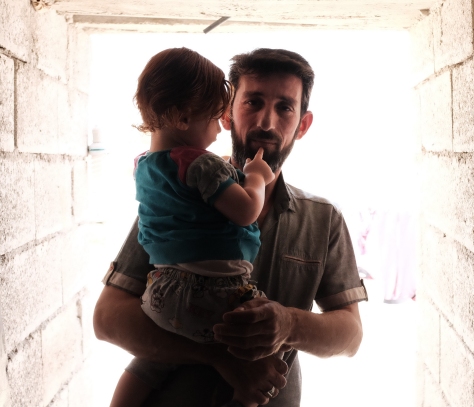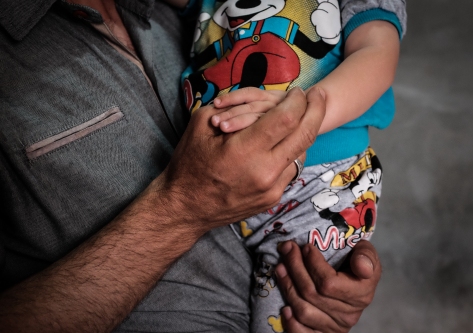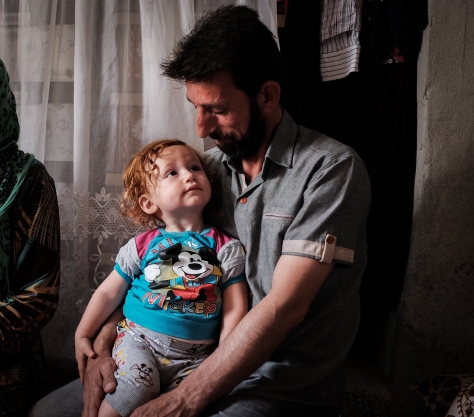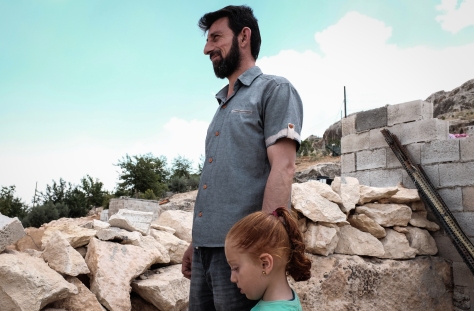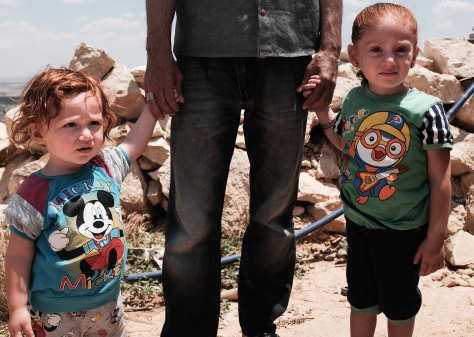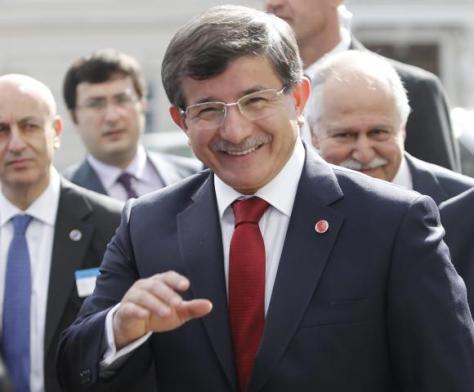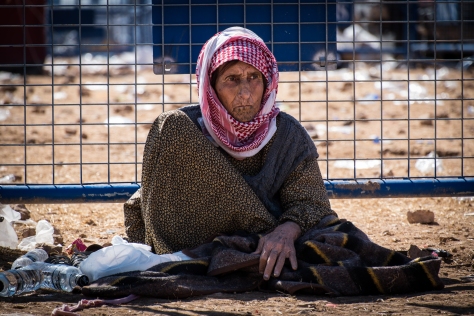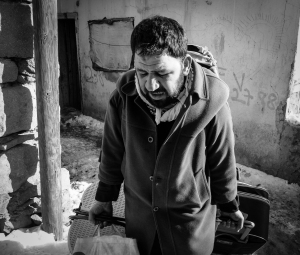Ramadan never wanted to take his family into exile, but when it became clear that he would be made to fight for Islamic State, he knew it was time to go. A year ago he and his young family were desperately trying to maintain a sense of normalcy at home near the militants’ stronghold of Raqqa as the war raged about them. Now they eke out an existence in neighbouring Turkey, a country which offers relative safety, but where the language is alien, work is scarce, and where the authorities are already struggling to accommodate nearly 3 million Syrian refugees. Ramadan, his wife and children may have a modicum of security, but their sense of loss is palpable.
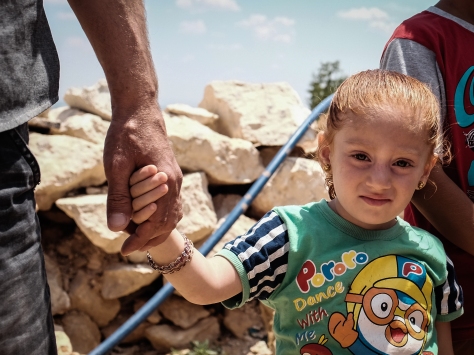
“When I compare my life here, of course it was so much easier in Syria. When we lived there I used to dream about the future, but in Turkey you can’t dream, all we focus on is where our next meal will come from,” Ramadan says. The 36-year met a Turkish man who helped them find shelter in a rented two-roomed house on a bare, rocky hillside on the outskirts of the city of Sanliurfa. Spread out below their squat dwelling, the gleaming tower-blocks of downtown are clearly visible, whilst to the south, undulating, arid terrain rolls 30 km towards the Syrian border. On the other side rages a conflict which, now in its sixth year, has created a vortex of violence, leaving Ramadan’s hopes for his children’s future in tatters, but which they can do nothing to stop or influence. “This is not our war, if the world’s leaders decided amongst themselves they could stop this happening, but they don’t,” he says. “We are lost here in Turkey, we don’t know what tomorrow will bring. ”
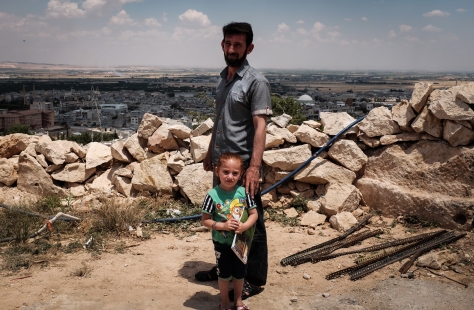
That tomorrow would bring peace remains little more than a faint hope. A political solution seems as distant as ever and meanwhile the bloodshed continues. It was Ramadan’s realisation that a militarily struggling Islamic State would call him up to fight, and crack down harder on the populations it rules over that finally pushed them to leave their friends and extended family and head to the border. Ramadan went first and once he had established himself with a low-paying job and a roof over his head, his wife Guzun followed with their children, Suraya, 4, and Ahmed, 2. They waited more than 40 days at the frontier before they were able to cross to safety.

“I miss all my relatives, who are still in Syria, each week I speak to them on the telephone and they tell me things are getting worse,” Ramadan says. “In Turkey we don’t need to fear for our safety, but I worry so much about my family, living under Islamic State. They are always telling people what to wear and how to pray, women can’t go outside. I heard they even confiscated all the TVs from the houses during Ramadan, because they say it’s haram.”
As a woman, Guzun, 35, says she found life under Islamic State ever more repressive. “At the beginning it was OK because they weren’t attacking our private lives, but as the war started going badly for them, so they started telling us how to live. They would make us wear the burqa, and even then, if they saw a woman in the street they would force her to pay a fine. I’m not used to living with the burqa. When they pushed me to cover my whole body it was so difficult. I am a good Muslim, but I know it doesn’t have to be like that,” she says.
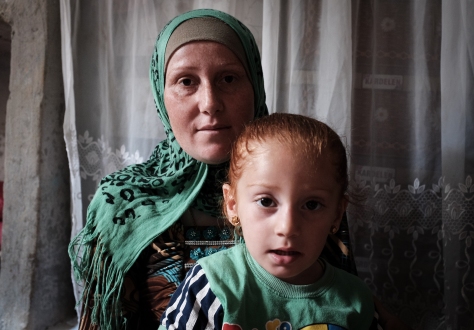
In Turkey Guzun can dress how she likes, but they face new challenges. Not understanding Turkish, they have struggled to navigate the process of registering as refugees in Turkey, meaning they cannot send Suraya to school, and access to healthcare is a challenge.“Life is good but difficult, if we want anything from the hospitals or schools, we don’t know what to do, we don’t speak the language.” Instead, Suraya sits on the hard stone floor of their darkened little house, colouring pens clutched in one hand, gazing avidly at the pictures in one of the few books they possess.

Ramadan and Guzun hope that things will get better in Turkey, but with so many other refugees, competition for work and services is fierce. Ramadan’s labourer’s job in one of Sanliurfa’s markets is supposed to bring him 15 Turkish Lira ($5) a day, but even that is not guaranteed. Already he says his boss has held back parts of his salary, but with no legal status and doing what is in effect illegal work, there’s little he can do. “There was nothing I could say, no way that I could assert my rights.”
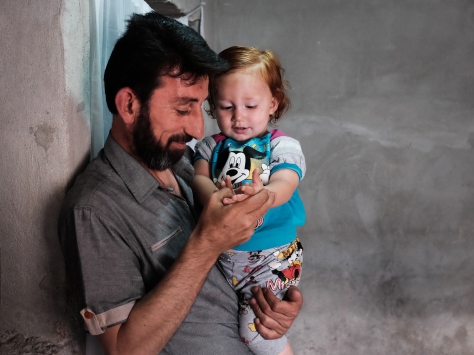
Like many Syrians, Ramadan thinks that Europe could offer a brighter future, if only he could get there. “One dream I still have is to travel to Europe, if I had the chance. I wouldn’t go illegally, I will register myself with the Turkish authorities and wait until they call me, but I believe my children would have a better life there.”
More than anything, Ramadan wants to take his family back to where they belong, in Syria. “If the war ended, we’d go home tomorrow,” he insists. Ramadan and Guzun’s story is not unique. It is one of millions of tales of everyday suffering, drowned out by war and high politics. The deep love they have for their children is palpable, as is the sadness and frustration they feel at how their small lives have been swept up in events they cannot control or understand. “I am nothing,” Ramadan says with a shrug. Then, stroking Ahmet hair gently and breaking into English for the first and only time he adds: “But they are the future.” 